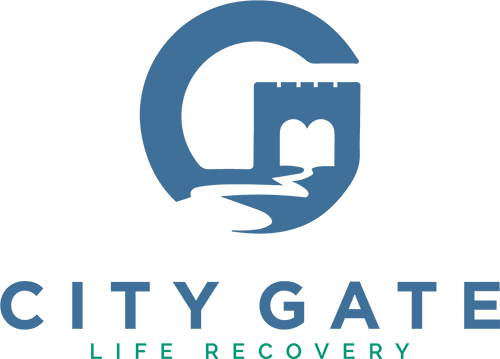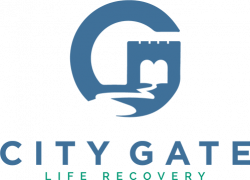- Home
- Sex Addiction and Relationships – Partner
Lately, you’ve been noticing changes in your relationship, and are unsure as to what is happening, but your gut is telling you that something is wrong even though you cannot figure out what it is. Maybe it was porn that you found on your partner’s phone. Maybe you have known for a while but are just now getting to a point where you have the courage to face and confront the problem. Whether you’ve just discovered something, or there have been some signs along the way, please know you’ve come to the right place.
We encourage you, whatever space you are in, to reach out for support. You do not have to walk this journey alone.

My Partner Has a Sex Addiction
Whether you have just discovered that your partner has been engaging in sexual acting out behaviors, or you have known for a while, the impact is staggering.
As a partner, you might be asking yourself, “What if I had been more sexual? Maybe if I initiated more? Maybe if I was prettier, lost 10 pounds, or looked like the person in…”
More often, betrayed partners find themselves asking the questions – “How did I end up here?” and “What could I have done differently?”
At City Gate, we understand that this journey is not a path that any partner chose for themselves. We also understand that feeling of being stuck and disempowered. Therefore, we work with partners to help them regain their voices, find empowerment, and work towards hope, healing and restoration.
Sex Addiction Signs in Your Partner
Is your partner demonstrating any of the following symptoms?
- Your partner is secretive around phone/computer/electronic devices
- Feeling like your partner is manipulating you, your thoughts, feelings and emotions
- Intense anxiety; insecurity; panic — as if you are out of control or “going crazy”
- Unexplained or poorly explained charges to your bank/financial accounts
- Sensing that your partner is hiding something
- Changes in sexual intimacy

Signs of Betrayed Partner Fatigue & Trauma
- Repeatedly remembering and reliving the trauma of discovery
- Severe emotional distress
- Feelings of sadness, loneliness or abandonment
- Regularly feeling overwhelmed and unable to think
- Triggers that result in reliving the trauma related to your partner’s acting out behavior
- Noticing you are doing things out of your normal character
- Significant changes in appetite and sleep patterns
- Feelings of inadequacy or unworthiness
- Failure to see yourself as attractive or desirable
- Feeling numb
Please note, these are just some of the varied symptoms partners of sex addicts report. Many betrayed partners report identifying with one or more of the above symptoms which helped them validate their experience and gain the needed insight that something was sabotaging their relationship.
Help for Partners of Sex Addicts
Despite the fact that we live in a highly sexually focused culture, talking about sex can still be uncomfortable! But what do you do when your partner is struggling with pornography and/or a sex addiction? For partners, the topic of sex often becomes a source of pain, shame, and isolation. Partners frequently ask “Who can I talk to?” and “Who can understand what I am going through?”
For this very reason, we have therapists with specialized training to walk with you on your journey towards healing. We also know that sometimes it takes time before you are brave enough to take that step to reach out. In the meantime, please visit our resource page to learn about helpful material that can guide you in your journey.
As a partner of a sex addict, it is important to reach out to gain the support and guidance you deserve, as you navigate the path toward your healing and recovery.
Frequently Asked Questions
A full therapeutic disclosure, also known as a “Rite of Truth” is a 2-3 hour session during which the hurt partner of the sex addict finds truth, and the sex addict has an opportunity to step into responsibility. A full disclosure gives space for healing to start through the disclosure of information, while also giving the partner an ability to make an informed decision about the relationship.
Of the many consequences of addiction and addictive behaviors are a vast web of lies, betrayal, blame-shifting, and manipulation that have often occurred over a period of years, sometimes decades. This leaves the betrayed partner questioning everything. A full disclosure gives space for healing to start through the disclosure of information, while also giving the partner an ability to make an informed decision about the relationship.
To complete this in a meaningful and comprehensive way, the betrayed partner works closely with a therapist to identify what historical information and the breadth of disclosure desired. The addict works closely with their therapist to complete a formal document that includes a timeline of acting out behaviors requested by the betrayed partner. Meanwhile, the Full Disclosure Meeting, which will include both therapists, will guide the process and include time for clarifying questions. Due to the depth and extent of lying, deception and manipulation, a polygraph is required as a part of the full disclosure process, to provide an outside source that can verify the truthfulness of the information being requested.
When done therapeutically, this can provide a meaningful step towards building a new future on the foundation of honesty and integrity.
For more information, please watch Therapeutic Full Disclosures or visit our resource page, and talk with your therapist.
Yes. A depressed or anxious partner is more likely to be addicted to anything that acts as a coping mechanism in the absence of treatment. Behavioral addiction, whether it be to sex, substances, or eating and gambling, is a complex web of issues that often have ties to one’s genetics, neurobiology, childhood trauma, and other life experiences. Someone who is grappling with depression or anxiety can find themselves reaching for quick fixes like alcohol, drugs, or sex.
This is a great question to discuss with your trauma recovery therapist. As part of your journey towards empowerment, we encourage you to consider ways to care for your entire self, including your mind, body and soul. In addition to your trauma therapist, this includes seeing a medical doctor for your physical health. We understand that what happens in our mind, body and soul are connected and impact one another. Therefore, as part of your recovery journey, we encourage you to a complete a full medical exam, including screening for sexually transmitted infections and diseases.

